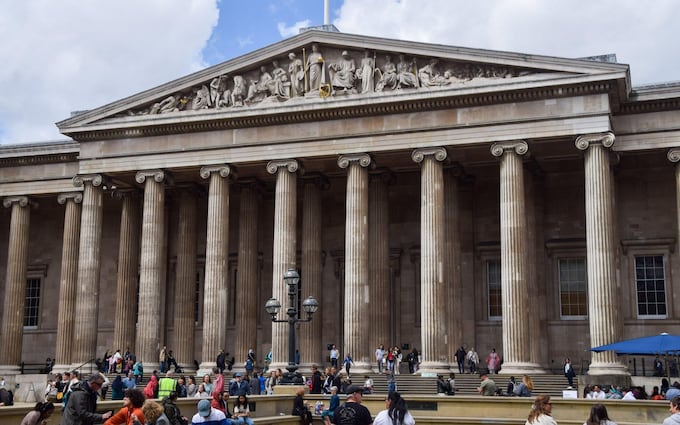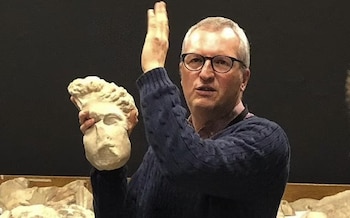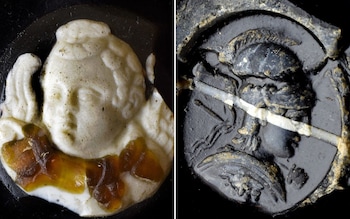
The museum is trying to recover the missing objects but is hampered by incomplete records
Credit: Vuk Valcic/Alamy
The British Museum has said it will financially compensate buyers of artefacts stolen from its collection.
In August last year,the museum revealed that more than one thousand collection items were missing,stolen or damaged – and a member of staff had been sacked.
Civil proceedings against Dr Peter Higgs,the former curator,were launched in March in relation to the missing items.
Court documents stated that his former employer believed Dr Higgs had pocketed an estimated £100,000 from stealing,damaging,melting down and selling the artefacts,according to a BBC investigation.
Dr Higgs denies the allegations and is defending the case against him.
Yesterday,a spokesman for the Museum confirmed it had put together a compensation scheme for people who bought the artefacts in good faith.

Dr Higgs,pictured when he was still a British Museum employee
A British Museum spokesperson told The Telegraph: “Payments will be made on a case-by-case basis. None of the money will come from public funds – the Museum has specifically raised funds for this purpose.”
The spokesman confirmed that no claimants have received payments so far and said: “That scheme is in place,set up… It will likely be in the next financial reporting period that all of that will get reported.”
It is also understood that many of the buyers of suspected missing items paid relatively small sums for them.
Of an estimated 1,500 artefacts stolen or missing,the British Museum has so far recovered 626. One hundred more have been located but not yet brought back to the institution.
The announcement came after the BBC revealed that the FBI is investigating suspected sales of missing artefacts to US buyers – and has already assisted with the retrieval of 268 items that were sold to a collector in Washington DC.

The museum put ten recovered stolen items on show to the public in February
Credit: British Museum
One New Orleans-based buyer told the broadcaster he was contacted by an FBI agent over two purchases he made on online auction site eBay – an amethyst gem depicting Cupid riding a dolphin and an orange scarab beetle.
The buyer,Tonio Birbiglia told the BBC he had bought the gems from an eBay user named Sultan1966,an account which the museum claims Dr Higgs admitted was his,according to court documents.
The items have not been examined by the British Museum,so it is not yet known if they were part of its collection.
The buyer asked the agent for more information about the gems,such as pictures,so that he could try to help track them down.
Neither the FBI,UK police,nor the British museum appear to have followed up on this request,according to Mr Birbiglia.
“The whole thing just seemed like they [the FBI] were blowing it off,” he told the broadcaster. “He [the agent] didn’t try very hard.”
The museum is still looking for ways to prove that certain artefacts were part of its collection – and in some cases,this involves collectors donating items to the museum so staff can assess them.
A source close to a Washington buyer,believed to have bought 268 items from Sultan1966 over eBay,said he had paid up to £7,000 for the artefacts.
It is understood these gems have now been handed to the museum,where an investigation to prove ownership is taking place.
One is thought to be a second century head of the Greek hero Hercules made from obsidian,a natural volcanic glass.
Dr Gradel paid £300 for the stone,which was offered in a private deal under an alias Dr Higgs used,according to the BBC.
In emails seen by the broadcaster,the seller told Dr Gradel that it belonged to the seller’s sibling,who had inherited it from their grandmother.
Nobody has been arrested or charged in relation to the missing artefacts and Dr Higgs is defending the civil case brought against him.
A British Museum spokesperson declined to comment on the BBC investigation when approached by The Telegraph.

English Morning News: Your Source for Regional News and Corporate
© English Morning News
Privacy Policy